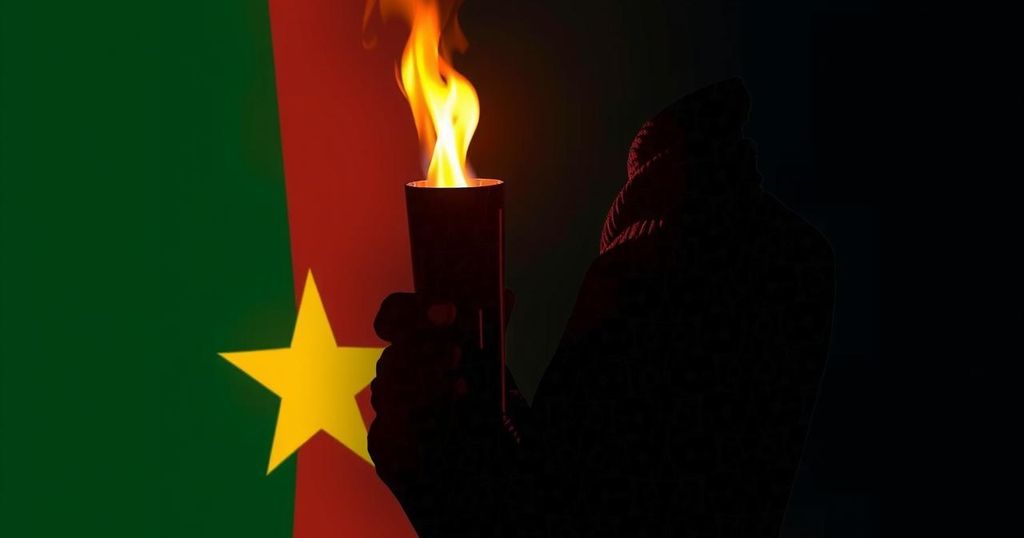As Ghana approaches its presidential election, the illegal mining crisis, labeled “galamsey,” underscores pressing economic and environmental issues. Miners face dire working conditions driven by a lack of economic opportunities, while pollutants threaten agriculture and public health. Candidates will need to address these urgent concerns amid widespread public frustration and calls for sustainable practices.
In Ghana, the rise of illegal mining, referred to locally as “galamsey,” is becoming increasingly intertwined with the nation’s political landscape, particularly as citizens prepare to vote in the upcoming presidential election. Near Accra, individuals like Frank, who remain nameless due to safety concerns, toil under harsh conditions to extract gold, reflecting widespread unemployment and economic desperation. Despite awareness of the environmental damage caused by their activities, many miners feel compelled to engage in these practices as legitimate employment opportunities remain scarce.
As Ghana stands as the world’s sixth-largest gold exporter and a major cocoa producer, the negative ramifications of galamsey are profound. The mining boom has devastated agricultural land, polluted waterways, and imperiled cocoa production, with significant chunks of fertile soil lost to mining activities. The country faces dire challenges as more than 19,000 hectares of cocoa-producing land have been damaged, endangering vital water sources for millions of citizens due to toxic runoff.
The upcoming election is critical, especially with candidates like Vice President Mahamudu Bawumia of the ruling New Patriotic Party (NPP) and opposition leader John Mahama vying for votes amid the pressing concerns surrounding illegal mining. Public sentiment reflects growing unrest, with protests advocating for urgent reforms and governmental accountability. However, skepticism prevails regarding political promises to address the crisis, as many feel that neither party has proposed a solid strategy for tackling illegal mining practices.
The environmental toll appears mounting, with estimations suggesting that more than 4,700 hectares of land have been ravaged across multiple regions in Ghana. Moreover, illegal mining accounts for approximately 40 percent of the country’s gold output and generates employment for over one million citizens, primarily young men. Critics highlight that enforcement measures aimed at curting illegal mining remain inconsistent and poorly executed, failing to offer a sustainable solution.
In light of the recent demonstrations reflecting public frustration, it is incumbent upon political leaders to engage with all stakeholders involved to craft effective solutions. As the election approaches, the dual challenges of environmental destruction and economic precarity pose critical questions for Ghana’s future governance and sustainability. The collective voices of miners like Frank present a pressing need for the authorities to reassess their approach towards illegal mining in favor of responsible practices that promote both societal and environmental health.
Illegal mining in Ghana, known as “galamsey,” has emerged as a pressing socio-economic issue exacerbated by chronic unemployment and poverty. The phenomenon presents significant environmental challenges, affecting agricultural land and water sources due to toxic byproducts associated with mining activities. As the country heads towards a presidential election, the illegal mining crisis takes on heightened importance, influencing public opinion and potentially the electoral outcomes as candidates address pressing concerns amongst the populace.
The issue of illegal mining in Ghana could dramatically impact the nation’s political landscape as citizens prepare for the upcoming presidential elections. With rising unemployment and environmental degradation taking center stage, candidates will have to formulate credible strategies to confront the challenges posed by galamsey. The sustained pressure from both the populace and environmental advocates is crucial to ensuring that the new government prioritizes sustainable development while addressing the needs of its citizens engaged in this perilous trade.
Original Source: www.france24.com






